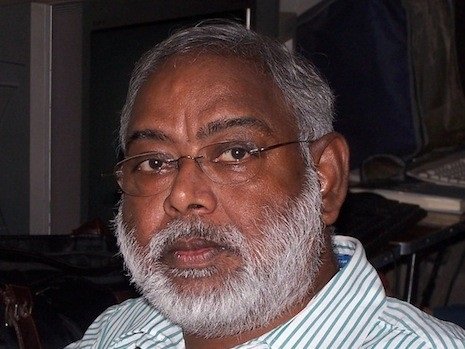Minority faiths are being throttled all over South Asia
 A subcontinent of intolerance - Minority faiths are being throttled all over South Asia
A subcontinent of intolerance - Minority faiths are being throttled all over South Asia
Away from the international focus on Islamic states in North Africa and the Arabian Peninsula, South Asia’s increasing bigotry and religious intolerance has reached an unacceptable stage. Official impunity, extreme legislation and the complicity of state and non-state actors compound the issue.
Christians as minority religionists are the subject of persecution in each of the seven South Asian countries – India, Pakistan, Bhutan, Nepal, Bangladesh and Sri Lanka [Maldives, the seventh, has almost no minorities in an entirely Islamic state] – while followers of every other major world religion are persecuted in one or the other of the sub-continent’s seven countries.
Muslims and Christians are victims in India; Christians, Hindus and Buddhists in Bangladesh and Pakistan which are Muslim-majority nations; Christians and Muslims in the Buddhist countries of Sri Lanka, Bhutan and Nepal. It complicates issues as the countries differ in their political structures and overlays of ethnic identities.
Ironically, India’s anti conversion laws are designed to counter Christian churches, and Pakistan’s anti-blasphemy laws, are sought to be replicated in the other countries to contain evangelization, and assert the supremacy of the majority religion.
This complicates sharing of good practices – such as the proposed Communal and Targeted Violence Prevention Bill which the National Advisory Council headed by Sonia Gandhi drew up in 2011 in the face of sharpening religious divisions in India in the wake of the 2002 anti-Muslim violence in Gujarat and the 2008 pogrom against Christians in Orissa state.
Recent dialogue between all religious groups from south Asian countries has cautioned against a rise in extremism that could threaten peace in the region where India and Pakistan have huge nuclear arsenals.
While majoritarianism is a common factor, and the recent rise of Wahabi Islam in Pakistan and Bangladesh a major trigger, smaller nations such as Bhutan and Nepal are falling prey to extreme protectionism to keep “alien” faiths, and immigrants, from polluting “traditional culture.”
In politically chaotic Nepal this is done without legal provisions, as the country is no longer officially a Hindu nation. However, a draft bill banning conversions hangs like a cloud. Another cause for concern is the tentacles the extreme Hinduism ideology of India’s Rashtriya Swayamsewak Sangh is spreading in the Himalayan nation.
The Catholic Church is tolerated here because of its educational institutions, but the sword of Damocles always hangs over around 25,000 Christian believers in house churches and Pentecostal para churches. For all practical purposes, though, it remains almost an underground church.
It is even more underground in Bhutan with its archaic nationalism and culture policy designed to preserve the purity of its Buddhist traditions and ethnicity. Even Buddhist Nepalese feel the sting of being aliens.
There are a mere 14,000 Christians in a Bhutanese population of 700,000. But the country’s first ever democratic government is yet to clear a proposal to grant Christians the right to build churches and form organizations, although it has not been tardy in enacting a law against conversions. This means that officially the state does not acknowledge the presence of Christians in the country.
Since the end of the civil war in Sri Lanka the victorious Sinhala-Buddhist government has started putting pressure on Muslims and Christians.
About 70 percent of the population of Sri Lanka is Buddhist Sinhalese, 15 percent Hindu Tamils, 8 percent Christian, and 7 percent Tamil-speaking Muslim. Almost 80 percent of Christians are Roman Catholics, many of them Sinhala. The regime is particularly suspicious of Protestant groups, 40 percent of whom suffer from the double disability of being Tamils. Many churches and individual Christians have been physically assaulted
War crimes apart, the current triumphal Buddhist onslaught against Muslims and the sustained pressure on Christians has caused deep concern in the international human rights community.
The plight of Christians in Pakistan – women raped, houses burnt and men arrested and threatened with execution on charges under the notorious anti blasphemy laws – is well known and has attracted international opprobrium and clemency campaigns. But it is the wave of violence against Hindus and Christians in Bangladesh that is an immediate cause of deep concern, especially in India, which is the recipient of people fleeing for their lives from the febrile nation.
India itself has a nuanced policy on people coming from Bangladesh; Hindus are absorbed and often given nationality as refugees, but the Muslims are deemed to be illegal infiltrators and are forever under the shadow of expulsion. The situation for Christians remains in limbo.
In recent weeks, Islamic fundamentalists protesting at a tribunal against alleged war criminals from the 1971 war of independence from Pakistan have vented their anger, especially on Hindus, in an orgy of violence that has left thousands homeless. The government is taking some timid steps to control the Islamists, but the minorities remain terrorized.
India is in no moral position to point a finger at its neighbors. Official records show that in 2012, there were reportedly 560 communal riots, leading to 89 dead and 1,846 injured. The majority of victims were Muslims. There are no official records on the persecution of Christian pastors and believers.
John Dayal is the general secretary of the All India Christian Council and a member of the Indian government’s National Integration Council.


 Votes : 0
Votes : 0









